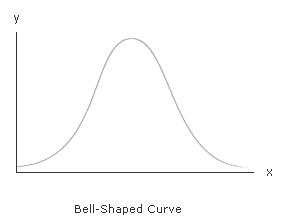 Sometimes, being swept off your feet is not at all that romantic. Consider walking into the ocean. The warm grains of sand wrap around your feet and toes, giving way just enough as you walk to build a small hole that tries to hold on with every step. The sand nearer the ocean is damp and cool from the remnants of waves that retreated only minutes past. Gathering your courage you press onward until that first taste of ocean water touches your toe. It is cold, and you stop walking – jerking your foot backwards, but only for a moment. Before you realize it, the waves are slapping against your knees and an occasional drop hits your chest.
Sometimes, being swept off your feet is not at all that romantic. Consider walking into the ocean. The warm grains of sand wrap around your feet and toes, giving way just enough as you walk to build a small hole that tries to hold on with every step. The sand nearer the ocean is damp and cool from the remnants of waves that retreated only minutes past. Gathering your courage you press onward until that first taste of ocean water touches your toe. It is cold, and you stop walking – jerking your foot backwards, but only for a moment. Before you realize it, the waves are slapping against your knees and an occasional drop hits your chest.
Category Archives: Where Are You Going Today
A Mosquito in the Back Yard
 Have you ever wondered what it might feel like to be a mosquito? Probably not, and if you have perhaps you should seek immediate psychiatric help. For the moment though, we’ll pretend its okay to consider becoming a small, annoying pest. The good news about a mosquito is that they belong to a very large family. Cousins, aunts, uncles, brothers and sisters are in abundance, although they come and go rather quickly. Your family name is Culcidae, and there are 3,500 different species in your family. We all know people who can’t go anywhere without meeting a friend (and it’s annoying); mosquitoes are like that.
Have you ever wondered what it might feel like to be a mosquito? Probably not, and if you have perhaps you should seek immediate psychiatric help. For the moment though, we’ll pretend its okay to consider becoming a small, annoying pest. The good news about a mosquito is that they belong to a very large family. Cousins, aunts, uncles, brothers and sisters are in abundance, although they come and go rather quickly. Your family name is Culcidae, and there are 3,500 different species in your family. We all know people who can’t go anywhere without meeting a friend (and it’s annoying); mosquitoes are like that.
The Brake Lights in Front of You
 When driving on the freeway in heavy traffic and something happens ahead of your car, the tail lights of cars far up the freeway light up, warning you of problems down the road. It can look like the lights on an airplane landing strip, each red light sequencing its turn to glow immediately after the next one in front, so that fifty lights covering a mile can rush toward your car in just seconds. It can be an immediate warning system, if one chooses to see it. Flashing brake lights that far in advance of a problem, can save your life, unless you are so preoccupied by “other stuff” you don’t heed the warning. Unless you are too busy to see the warning signs; then a big crash may be in your near future.
When driving on the freeway in heavy traffic and something happens ahead of your car, the tail lights of cars far up the freeway light up, warning you of problems down the road. It can look like the lights on an airplane landing strip, each red light sequencing its turn to glow immediately after the next one in front, so that fifty lights covering a mile can rush toward your car in just seconds. It can be an immediate warning system, if one chooses to see it. Flashing brake lights that far in advance of a problem, can save your life, unless you are so preoccupied by “other stuff” you don’t heed the warning. Unless you are too busy to see the warning signs; then a big crash may be in your near future.
The Vast Middle Ground
 The bell shaped curve, that great equalizer of the school classroom, is meant to explain how a population of test scores will eventually unfold itself neatly along a predetermine path, thus displaying the test results into upper, lower, and average positions. In my eighth grade English class, I prayed that everyone else was as confused and ill-prepared as I, so the entire curve would be adjusted downward, giving me a fighting chance for a graded-on-the-curve C. But the concept of a predictable outcome of highs, mediums and lows, is not just used in school; cars are labeled as luxury, mid class, and economy, you can fly in first class, coach, or in lower fare seats. The bell shaped curve is also used to described our life (yours and mine), in terms of its quality when compared to everyone else. Are we middle class, upper class, or poor? Those labels are thrown at us by politicians, reporters, educators; the need for others to categorize our life into a single box is nearly fanatical in its scope.
The bell shaped curve, that great equalizer of the school classroom, is meant to explain how a population of test scores will eventually unfold itself neatly along a predetermine path, thus displaying the test results into upper, lower, and average positions. In my eighth grade English class, I prayed that everyone else was as confused and ill-prepared as I, so the entire curve would be adjusted downward, giving me a fighting chance for a graded-on-the-curve C. But the concept of a predictable outcome of highs, mediums and lows, is not just used in school; cars are labeled as luxury, mid class, and economy, you can fly in first class, coach, or in lower fare seats. The bell shaped curve is also used to described our life (yours and mine), in terms of its quality when compared to everyone else. Are we middle class, upper class, or poor? Those labels are thrown at us by politicians, reporters, educators; the need for others to categorize our life into a single box is nearly fanatical in its scope.
Perhaps worse is when we place our ability to be happy (content, or joyful) on a human bell shaped curve, relegating the amount of time we can spend being at the apex of life to 10-15 %, and when we are ‘just average’ to 70% of life’s timeline. I don’t believe people knowingly choose a mid-level happiness state for the bulk of their life, I think it just happens. I think we self-impose an expectation that being in a constant state of over-the-top exuberant happiness is wrong – only weird or naive people think like that. We tend to accept that good is good enough, and great is rare.
Ask someone the question, “How are you?” The overwhelming response is, “Good.” You will get a few greats, and a few that are ousy, but good will dominate. I submit that being great is a much more natural state that being good, and that we can, and should, redefine the curve to include more great, and less good and lousy. I believe that the plan was always for greatness, and we have deviated from where we can be.
Here are a few ways to move the bar towards great:
- Redefine the driving force that creates your personal happiness (or joy) away from external sources to internal ones. Try not to rely on a person, place or event to make you happy. Choose to be happy all on your own.
- Use your own definition for happiness, not that of someone else. It’s your life, you get to define it.
- If happiness and joy are elusive, try doing something great for someone else, and something great for yourself too. Feeling great spreads from person to person like butter on warm bread.
I’m not proposing an arrogant version of great or a prideful view of happy. Just the opposite, I am promoting a humble and sincere version of being at the top, where there is room for everyone.
I find joy in my faith, where I am told that I am special, I am one of a kind and I am loved beyond my capacity to comprehend. There is nothing wrong with feeling good, but there is something very right about being great.
Thanks for reading.
